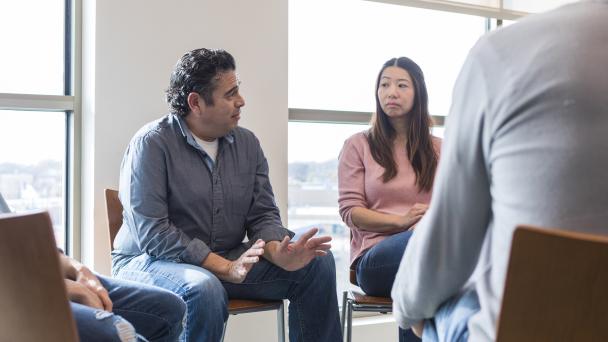The dilemma of local government reform: How to balance efficient services and local needs?

The article was first published on the School of International Futures website, click here to read the article on their website.
We recently participated in the School of International Futures’ (SOIF) 2023 strategic foresight retreat. For a concentrated week, we engaged in learning, problem-solving, and networking. The 28 participants came from around the globe, representing philanthropy, NGOs, think tanks, and government bodies. We both were among only a handful of participants focused on the future of democracy.
The retreat introduced us to a range of foresight techniques that aimed to broaden our perspective, navigate uncertain terrain, stimulate our creative thinking, and enhance our effectiveness as agents of change. Below, we reflect on our newfound insights and how they may guide our efforts concerning democracy in both the United States and the United Kingdom.
Above all, the SOIF retreat was impeccably planned and facilitated. We learned the essentials of strategic foresight, recognising its pivotal role during periods of rapid change. It became clear that we need new thinking as we transition to new paradigms and forge novel connections with each other and the environment. Foresight equips us with the tools and frameworks to embrace this change, and to “hospice” the old and “midwife” the new.
Across five intense days, we practiced the art of defining a complex query set by a hypothetical client, scanning the horizon for potential developments, crafting scenarios envisioning various futures, immersing ourselves in those scenarios, and then reverse-engineering our path from a desired future to the actions required in the present to heighten the likelihood of attaining those desired outcomes.
Democracy's Role in Just Transitions
Our fictional client was Indy Johar from Dark Matter Labs, and our mandate involved advising him and the Mayor of Copenhagen in 2050 on achieving a net-zero material future for the city. It became evident that regardless of the scenario we envisioned when providing our recommendations, they all required sustained acts of will that would reshape habits and norms across all societal spheres.
All of the scenario teams recognized that people must actively participate in constructing the futures they wish to inhabit and this extended to policymakers, activists, politicians, and businesses alike. All the recommendations offered to Indy and the Mayor involved engaging the public more deliberately and inclusively today to drive essential change in the coming decades.
This confirmed our intuition that just transitions must include robust participatory democracy, not simply technocratic pronouncements and leading edge policy-making, though we know these elements remain pivotal. In order to confront intricate and complex 21st century challenges, from climate change to inequality, effective governance, trust in institutions, and extensive participation from all strata of society are essential.
What gave us optimism and hope was the broad recognition that renewal and transformation of some of the basic structures and contracts of social and economic life are possible and needed. Our relationships to one another and the planet are reaching limits, which our current short term-focused paradigms find difficult to address. That implicates democracy itself, which needs to demonstrate to an increasingly skeptical public that it has the ability to bring disparate voices together to solve collective problems durably and decisively.
Hope Lies in New Democratic Futures
We think solutions will lie at the intersection of strategic foresight, democratic innovation, and public engagement. To succeed, we must dismantle silos and strive for collective action that values sectoral pluralism, diverse perspectives, and multifaceted experiences. Many individuals active in the democracy realm, even in innovative deliberative democracy endeavors, seldom incorporate forward-looking foresight into their processes. Similarly, foresight professionals aren’t widely integrating foresight and visionary practices into participatory approaches that impact the public and extend beyond political and corporate elites. How do we surmount these limitations and weave these critical strands together?
To begin, let’s explore how technology can facilitate heightened civic engagement and meaningful participation. We must ensure that citizen assemblies and other participatory processes integrate aspirational futures, allowing people to collectively envision and work towards them, transcending present problem-solving. How can we integrate diverse voices into the formulation and framing of future-oriented work, even at the community level? In addition to dedicated deliberative processes like citizen assemblies, can we revive town hall meetings and regular committee sessions as forums for community-building and collaborative creation of better futures? What techniques and cues foster an environment conducive to shared effort, respecting divergent opinions, energizing agency, and spurring action, thereby rebuilding trust in both one another and our democratic institutions?
Embracing Change as Essential Work
Inspired by the SOIF retreat, we’re determined to identify and unlock democratic innovation to achieve enduring societal goals embodying preferred futures – ones that are just, sustainable, resilient, equitable, adaptive and diverse. Essential to this will be making the public part of a process to usher in a new paradigm for democratic renewal and building strong, generative networks of change agents across disciplines, geographies and societal sectors.
The retreat reminded us that grappling with change is hard. Yet change shouldn’t be seen as a barrier, although it may feel like one, it is the essential work before us.
If you are interested in having experiences like ours, consider SOIF’s virtual strategic foresight course or next year’s in person summer retreat.
Receive a regular update, sent directly to your inbox, with a summary of our current events, research, blogs and comment.
Subscribe